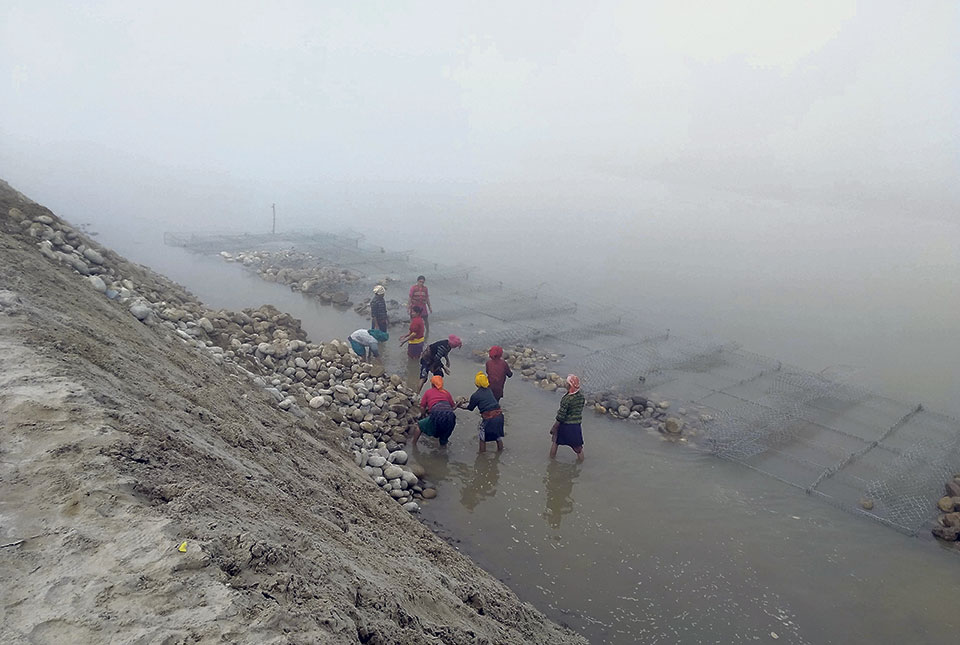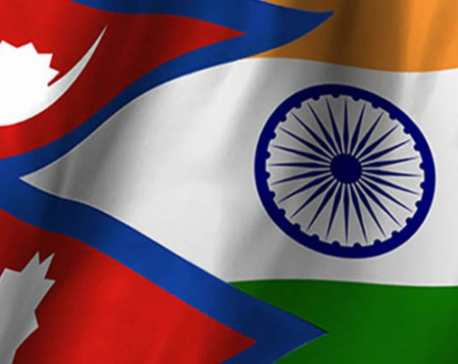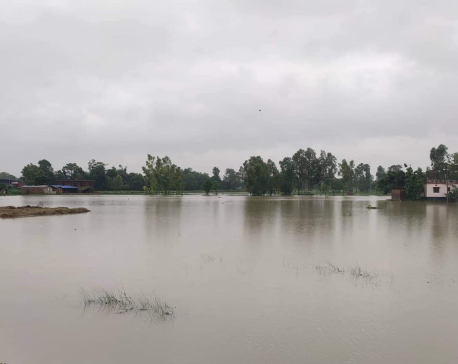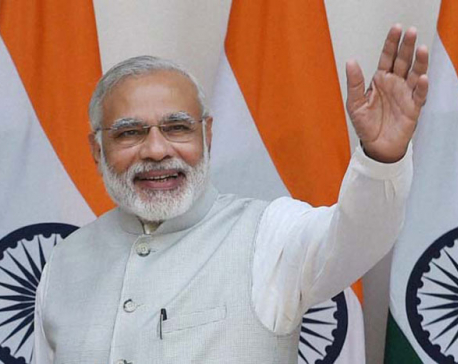
OR
#Editorial
Resolve Embankment Issue Diplomatically
Published On: December 7, 2022 07:42 AM NPT By: Republica | @RepublicaNepal

The unilateral construction of an embankment by the Indian side along the Mahakali River in Darchula district has triggered protests in Nepal after locals on both sides of the border engaged in pelting stones at each other over the issue. At least four children on the Nepali side of the border were reportedly injured in the incident on Sunday. Several political parties, including the newly-formed Rastriya Swatantra Party, have protested against India's unilateral move and urged it to immediately halt the illegal construction. Although a small incident in itself, this has a potential to ignite fire across Nepal as the border dispute over Kalapani, Lipulekh and Limpiyadhura remains unresolved. And, the request from Nepal at the diplomatic level to resolve the dispute amicably goes unheard for years. There is a widespread perception among the people in Nepal that India does not treat Nepal as a ‘sovereign equal’ neighbor and behaves like a ‘big brother’ despite the so-called ‘special relations’ between the two countries. It seems India, which has already embarked on its journey to become a global leader with the country recently taking up the G20 leadership, is not yet ready to change that perception when it comes to its relations with Nepal.
The dispute over the embankment seen now dates back to 2013 when the swollen Mahakali River inundated Khalanga, the district headquarters of Darchula, and changed its natural course, pushing it into the Nepali territory. The flood put a large area of land that originally belonged to Nepal on the other side of the River’s water course. Seven years later, officials from both the countries conducted a joint field study to determine the land area that the swollen river had pushed to the other side of the border. Back then, the joint study team arrived at a conclusion that around 200 ropanis of Nepali land had ended up being on the Indian side of the river. But the Indian side refused to acknowledge the finding and started unilaterally building the embankment instead. This not only puts Nepali territory on the Indian side of the border but also threatens to trigger massive floods in the entire Khalanga area during the monsoon season. As the Indian side continues to build the embankment unilaterally despite Nepal’s repeated requests to resolve the issue amicably, the barometer of fury on the Nepali side of the border continues to rise. It may be recalled that a similar incident of pelting stones at each other had taken place on the border on February 19 when the Indian side started dredging the Mahakali River to build the embankment. Local administration in Nepal then wrote to its Indian counterpart in Pithoragarh to immediately halt the controversial embankment project and settle the dispute amicably, making sure that it does not harm people on either side of the border. But as usual, there was no response from the Indian side.
These developments clearly show that India takes the issues raised by the Nepali side for granted. This attitude on the part of the Indian side does not augur well to the already troubled relations between the two countries. It is natural to have disputes between two countries that share borders. They should take pre-emptive measures to avoid these kinds of incidents from happening in the first place. They should immediately take up the issues at the diplomatic level even if some acts give rise to disputes. It is a positive development that local level government officials of both the countries have held meetings on Monday to resolve the issue. However, it is too little, too late. In this particular case, Nepal’s Ministry of Foreign Affairs (MoFA) also does not seem to have taken up the issue promptly. While the MoFA should now take up the issue immediately with its Indian counterpart, the Indian side on its part should also stand ready to resolve the issue diplomatically. It is in the interest of both the countries to take efforts necessary to ease the situation instead of further fueling the tension. There is no alternative to better cooperation between the two countries given our multifaceted interdependence.
You May Like This

Nepal, India officials hold discussion to resolve embankment related dispute
KHALANGA, Dec 6: Officials of Nepal and India have discussed the matter relating to disputes ensued on Sunday about construction... Read More...

Embankment built by India causes flooding in Nepal
RAUTAHAT, July 14: Over a dozen villages in Rautahat have been inundated by flood bringing people's normal life to a standstill. Read More...

Nepal good friend of India: Deuba, India ready to support Nepal's development: Modi
NEW DELHI, Aug 24: Prime Minister Sher Bahadur Deuba, who is currently on a five-day state visit of India, said... Read More...







Just In
- NRB to provide collateral-free loans to foreign employment seekers
- NEB to publish Grade 12 results next week
- Body handover begins; Relatives remain dissatisfied with insurance, compensation amount
- NC defers its plan to join Koshi govt
- NRB to review microfinance loan interest rate
- 134 dead in floods and landslides since onset of monsoon this year
- Mahakali Irrigation Project sees only 22 percent physical progress in 18 years
- Singapore now holds world's most powerful passport; Nepal stays at 98th











Leave A Comment